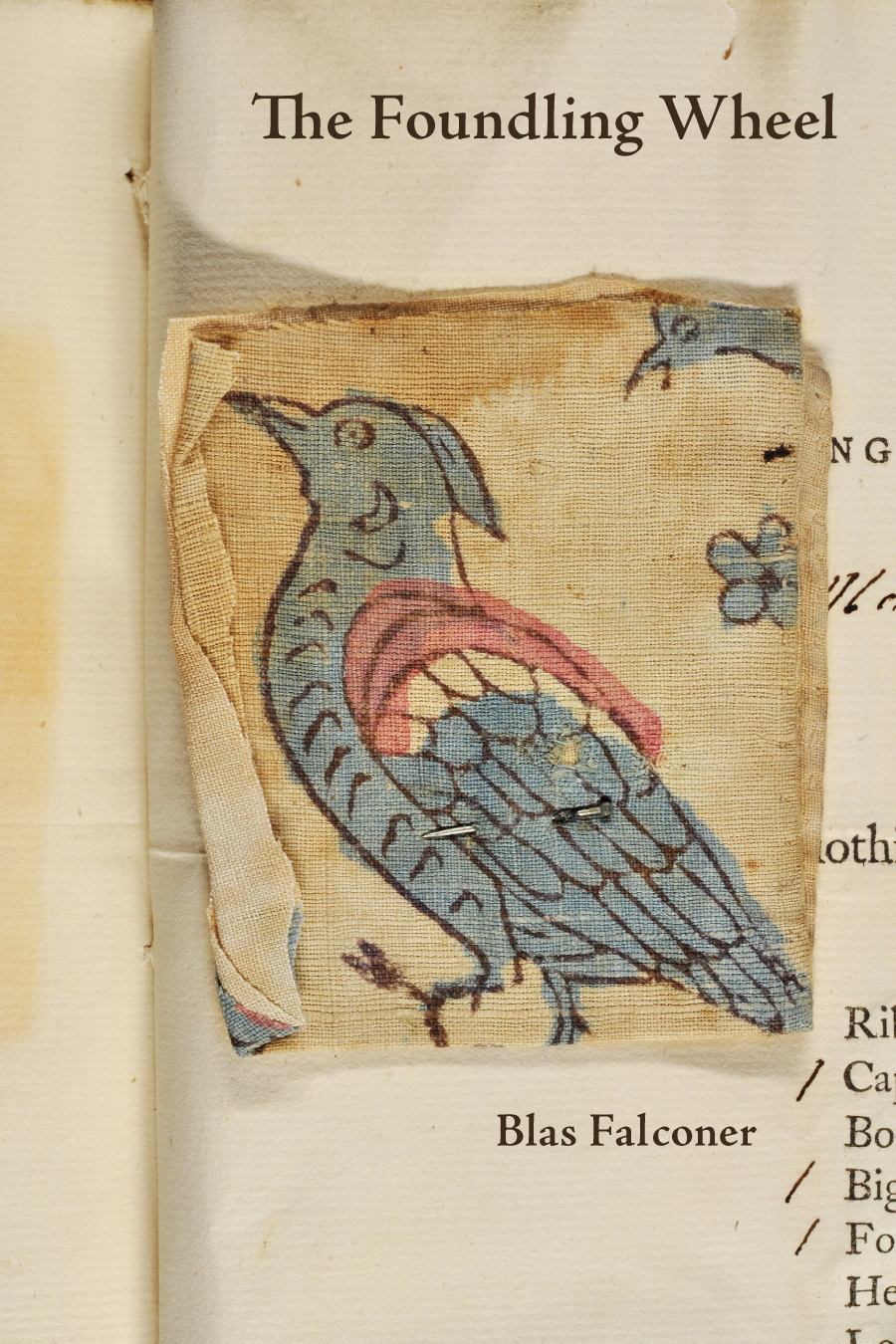
paper • 72 pages • 15.95
ISBN-13: 978-1-884800-98-6
Centered on the adoption of Blas Falconer’s son, The Foundling Wheel creates an emotional mosaic that explores the decision to become a parent. In “The Annunciation,” Falconer imagines Gabriel’s visitation: “Faith, he might have said, / as the cells of disbelief began to multiply: a son/ who’d face great pain? Certain death?” The book begins as the desire to have a child is first realized, and while it certainly rejoices in the bond between father and son—”my body, tuned / to hear you cry before you cry, stirs”—it also grapples with fears that accompany parenthood, loss of the former self, and the transformation from manhood into fatherhood.
In the title poem, Falconer writes, “They swept the river, caught the dead / in nets. Then a wheel with a box / let someone leave a child / for those who might best care for him,” in reference to the revolving platform first utilized in the 12th century that allowed a woman to anonymously give up her child. In these poems, the figurative turn of the foundling wheel brings the child to the speaker and his partner, altering their identities. The mother, too, is present as a tender, haunting figure: “The one who set her son adrift/ must have stood among the reeds/ for as long as she could,” Falconer writes, and, “There is no word / for the way your mother touched you.” Moving between received forms, free-verse, and prose, these poems wrestle with the weight of parenthood in an often unforgiving world, seeking moments of kindness and grace, when “Every face becomes strange, less human, / more beautiful.”
“The pastoral is the lyric of a landscape. Blas Falconer’s landscapes—and the people he places in them—elevate the pastoral to a level where the music has the force of an idea, in a language at once symbolic and probic. His ‘Field Marks for Birds,’ his ‘Warm Day in Winter,’ his ‘Bluffs of Pico Duarte’ become interiors of association and moral conviction, and the book they appear in, The Foundling Wheel, a force in itself.” —Stanley Plumly
“The Foundling Wheel is a book of homecoming, a journey whose course follows flickering signs and thrilling undercurrents to arrive at a joy ‘without likeness or memory.’ Inclusive, spare, intimate, wily, and precise, the poems in Blas Falconer’s second collection fulfill their author’s opening vow: ‘to cut the fruit and not think / of the heart, to think of it and not flinch / or flinch and cut through its core all the same.’ In facing ‘all fair and foul, lush and bare,’ Falconer turns survival and surrender into bittersweet sources of praise.” —Phillis Levin